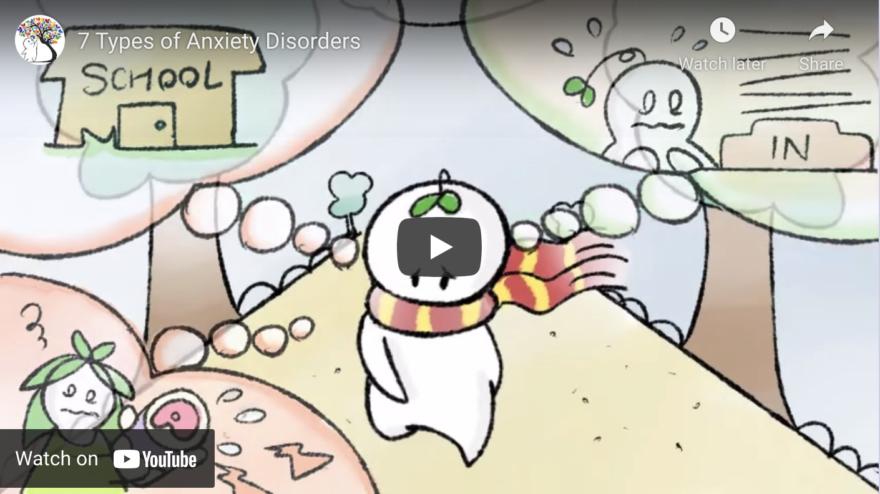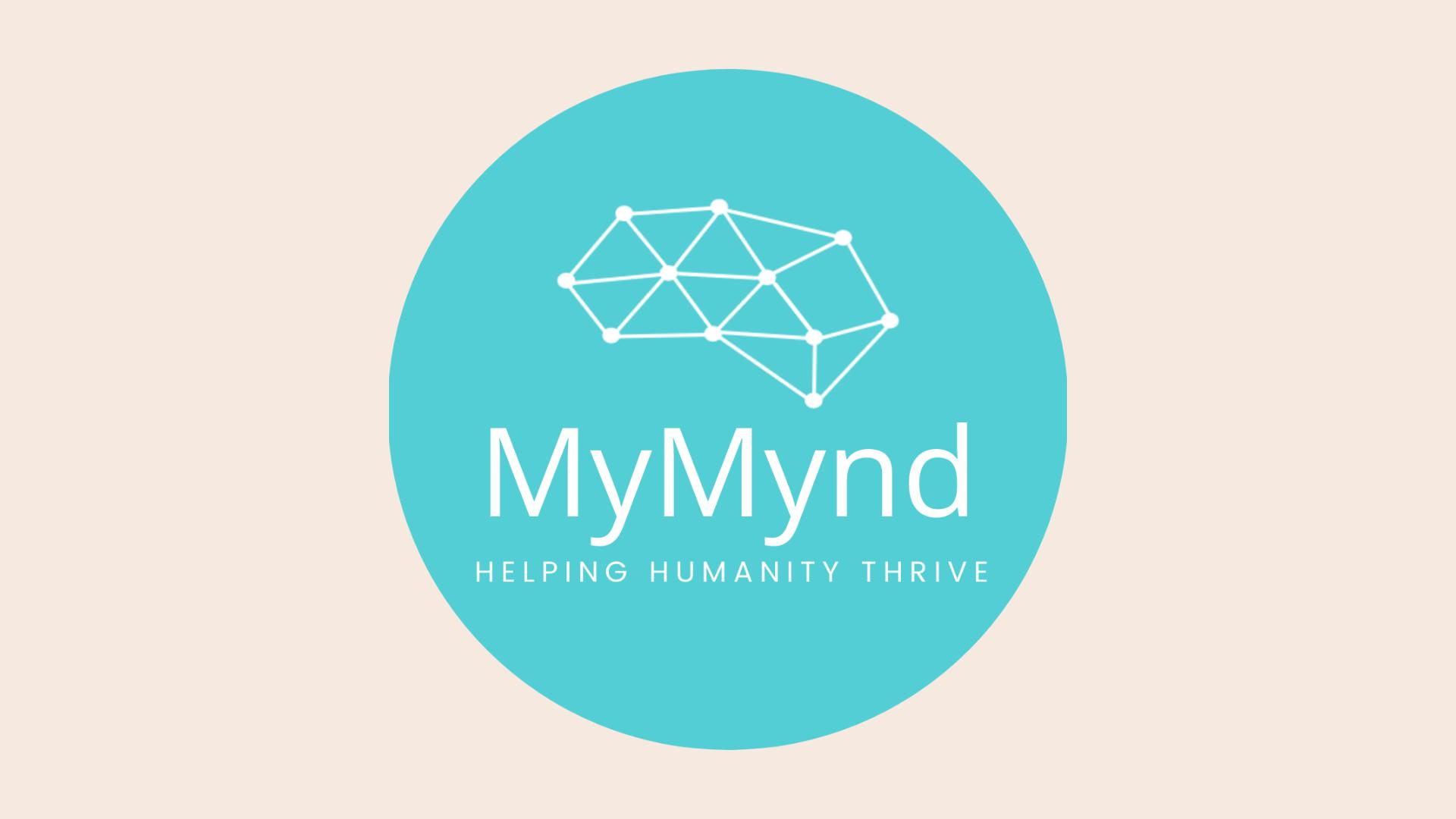What is Anxiety?
Everyone experiences Anxiety from time to time. Feeling anxious is a normal response to new, stressful or threatening situations and is our body’s way of preparing us to deal with those situations effectively.
However, when this response becomes disproportionate to the situation or event in question, it can be problematic. Prolonged or excessive periods of Anxiety can have a negative impact on our lives and may indicate the presence of an anxiety disorder, of which there are many types.
Note: the information provided in this module is not designed to diagnose you with an Anxiety disorder but rather to demonstrate the consequences of excessive Anxiety and to point you in the direction of relevant resources to help you if you are struggling right now.
Anxiety is characterised by ...
Heightened physical sensations
Anxiety can be felt as a number of physical sensations including tight chestedness, increased heart rate and shortness of breath. It is normal to experience these things in situations of high stress, however, if they are present most of the time or become so overwhelming that you are unable to carry out daily tasks, you should seek help from your GP.
Negative automatic thoughts
Automatic thoughts are the subconscious thoughts you have about yourself and the world around you. Negative automatic thoughts are the most unpleasant of these and are often irrational and self-defeating in nature. They can lead to self-doubt, Anxiety, Depression, anger and low mood.
Problematic coping behaviours
Problematic coping behaviours or “safety behaviours” are actions you carry out in order to protect yourself from feeling anxious. They can be effective in the short-term but actually serve to maintain your Anxiety in the long-term. They include things like avoidance, hyper vigilance and excessive checking.
How does this link to the MyMynd assessment?
Your Anxiety score
If your score for Anxiety was in the high concern range following your assessment it means that you endorsed many items that assess symptoms of general Anxiety. You may currently be experiencing significant distress in your day to day life. You may have difficulty sleeping or worry excessively about things that wouldn’t normally bother you. In addition to this, you may experience panic attacks which prevent you from carrying out simple daily tasks like meeting up with friends or going to the shop.
If this is the case, we recommend that you seek medical help from your GP as soon as possible. If you cannot wait to speak to your GP then please contact either one of the helplines or local support organisations that you can find below.
Looking back at your assessment results
It is also important to consider that all of the indicators in the MyMynd assessment are fundamentally linked. This means that whether your score for Anxiety is a high concern, optimal, or somewhere in between, there are various tools that you can use to enhance your resilience and increase your coping ability. Take some time to revisit your results and look through all of your individual indicator scores.
The Anxiety indicator is very closely linked to hope, happiness and self-criticism. By working on improving your scores in these areas you will be better equipped to handle adversity and may also start to see improvements in other areas as a result.
Get help now
How can you cope with Anxiety?
Calming your body and mind
Feelings of Anxiety can be overwhelming and make it seem like there is nothing you can do to overcome them. However, there are some practical steps you can take in these moments to help you deal with your Anxiety in a healthy way. For example, you can use coping strategies or practise mindfulness and meditation.
The section below provides tools and activities to make you feel more relaxed during periods of high Anxiety or overwhelming distress.
Changing your thoughts
Alongside coping with momentary experiences of Anxiety or panic, it is equally important to find ways of reducing the frequency and intensity of those moments. There are practical exercises you can complete to help you accept, address and reduce anxious thoughts and feelings.
The section below includes tools to help you understand and overcome your thought patterns when feeling anxious.
Tools for calming your body and mind
Tools for changing your thoughts
Support services
If you would like to access further support or discuss any concerns with a qualified mental health professional, the organisations below provide free self-referral options for various talking therapy and counselling services.
What is the NHS Talking Therapies, for anxiety and depression?
The NHS Talking Therapies (previously known as IAPT) is NHS programme that was set up in 2008 with the aim of helping people better understand and manage their mental health.
The programme offers a range of talking therapy services, including cognitive behaviour therapy (CBT). CBT is one of the most commonly used and widely researched therapies for the treatment of anxiety and depression and works by providing practical coping strategies for dealing with different problems.
All therapies available through IAPT are evidence-based and delivered by fully trained and accredited practitioners. For more information on the different types of talking therapies click here.
How to self-refer
1. Click here to open the NHS IAPT information page. Click ‘start now’ to enter the GP search finder. Enter the name or street address of your GP surgery; you will then be presented with a list of NHS talking therapy services in your local area.
2. Browse the information for each service by clicking on the ‘visit website’ link for each service. Once you have chosen a service that feels right for you, click ‘refer yourself online’.
3. Follow the on-screen instructions to complete and submit the self-referral form. Most services will contact you within 48 hours to confirm receipt of your referral and arrange an appointment with a practitioner – this contact will likely be a phonecall, displayed on your telephone as a private number.
Local Mind services
What is Mind?
Mind is a mental health charity which provides advice and support to anyone experiencing mental health problems.
They have a network of approximately 125 local Minds across England and Wales offering specialised support and care directly to those who need it most. The types of support available through local Minds varies depending on location but services include: talking therapies, peer support, advocacy, crisis care and more.
The main Mind website also provides emergency advice and urgent coping tools for use in crisis situations.
How to self-refer
1. Enter your postcode in the location search bar to be presented with a list of all the Mind services in your local area. Choose the local Mind that is nearest to your home address and follow the link to their website.
2. Explore the website for counselling and other support service availabilities. Once you have identified the support services that are available to you, follow the on-screen instructions to complete a self-referral for the service that feels right for you.
For online referrals, most services will contact you within 48 hours to confirm receipt of your referral and arrange an appointment with a wellbeing service worker – this contact will likely be a phonecall which may be displayed on your telephone as a private number.
What is the Hub of Hope?
The Hub of Hope is the UK’s leading mental health support database, bringing a range of local, national, peer, community, charity, private and NHS mental health support services together in one place.
The Hub is a signposting service designed to guide people towards appropriate support for their individual needs/preferences. It is available to everyone, not just those who are in crisis, and allows individuals to search for services tailored to their particular concerns.
How to use it
1. Enter your postcode in the location search bar or click on the “click to find nearby services” button. You will then be presented with a list of all the mental health support services in your local area that are registered to the Hub of Hope.
2. Use the filter buttons at the top of the page to refine your results according to service type e.g. NHS/private sector and area of concern e.g. anxiety/depression.
3. Click on each service individually for further information on their exact location, opening hours and areas of expertise. Most services list their contact details alongside a link to their own website.
More resources
Try other areas within MyMynd that are closely related to Anxiety.




